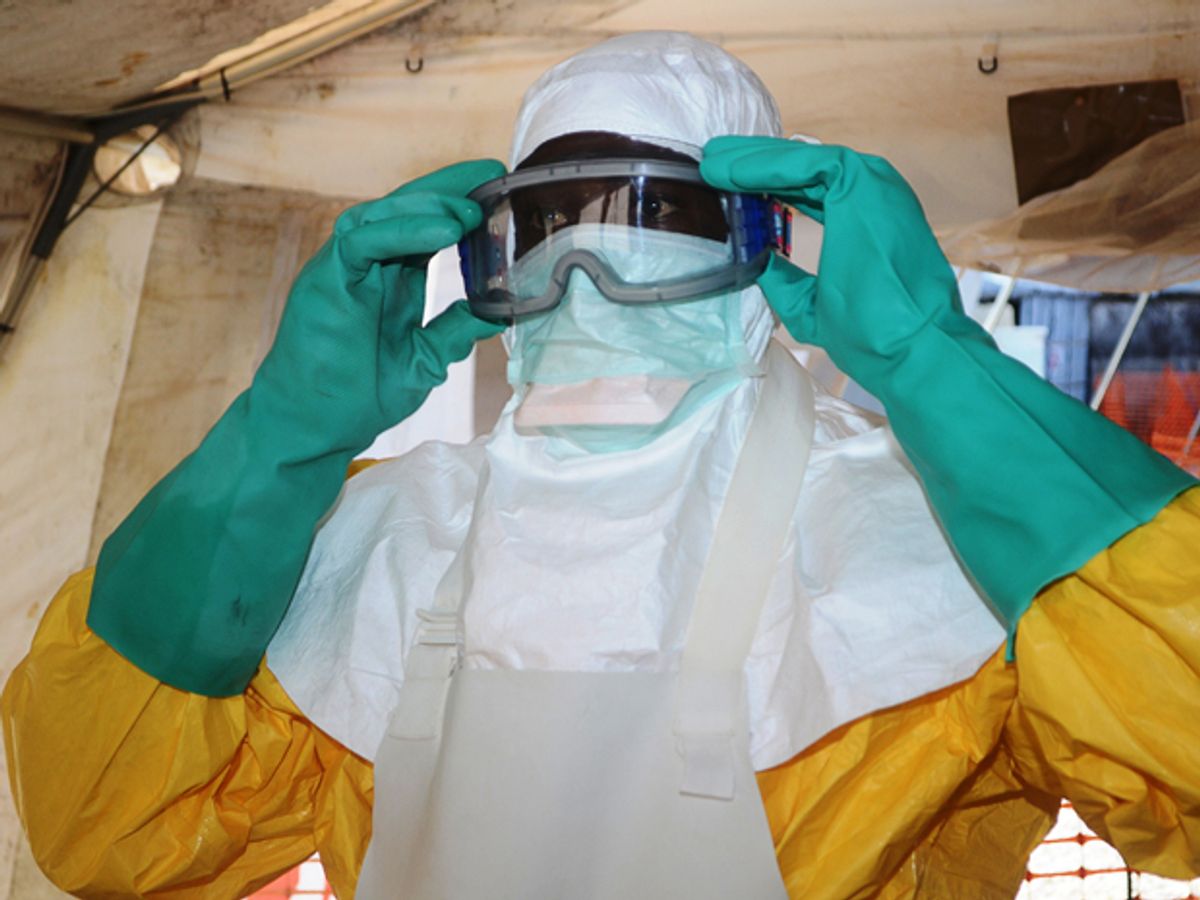Earlier this year, on 23 March, the World Health Organization issued an alert reporting that 29 people had died after contracting the Ebola virus in the West African country of Guinea. The WHO alert marked the first official confirmation of what has become the worst outbreak of the disease, which has now claimed over 1000 lives.
For diseases that can spread rapidly like Ebola, early detection is crucial. There is still no cure or effective treatment against the Ebola virus, so isolating patients is the only way of avoiding an epidemic. Any methods or tools that could speed up the detection of outbreaks, even if only by a few days, could be a huge help in containing the disease.
That's exactly what HealthMap is trying to do. HealthMap is a website that tracks infectious diseases using specialized algorithms to make sense of information from news reports, social networks, and more official data from governments and organizations like the WHO. In the recent Ebola crisis, HealthMap spotted a news report describing a "mystery hemorrhagic fever" that had killed several people in Guinea. A purple dot immediately popped up on the site's disease-tracking map, prompting HealthMap staff to start looking into the report. That was on 14 March, or nine days before the WHO sounded its alarm.
Introduced in 2006, HealthMap was created by two researchers at Boston Children's Hospital: John Brownstein, an epidemiologist and professor of pediatrics, and Clark Freifeld, a software developer who has a PhD degree in biomedical engineering. The tool they built collects data from the Internet in real time, looking at a wide variety of sources, including Twitter feeds, local newspaper articles, eyewitness reports. On the HealthMap website, users can browse an interactive map cataloging all of this data.
"We use natural language processing, machine learning, and cluster detection to represent a global view of epidemics," explains Brownstein. "As these sources build up, they bring together a picture of a serious situation for us. Our analysts work to synthesize and we disseminate the information via various channels."
HealthMap's web scraping algorithms are optimized to ignore unreliable and irrelevant sources. But another layer of sorting is provided by a team of humans that manually picks through the parser results to remove any suspicious entries before adding them to the map.
As accounts begin to pile up in one particular area, the indicators on the HealthMap interface take on a more ominous color alerting users that something serious might be happening. This is what happened on the site in March as the system began to detect multiple news articles citing hemorrhagic fever cases, suggesting that an outbreak of Ebola was possibly underway (see screenshot below).
HealthMap doesn't intend to replace the formal assessments provided by such organizations as the WHO, recognizing that it provides a different service entirely. According to Sumiko Mekaru, an epidemiologist and HealthMap contributor, the goal is to be a "one-stop automated shop for all online information on infectious disease around the world . . . so that health professionals can find what they need with a single search."
She adds that "while WHO is the gold standard, it is the gold standard because of all the verification steps and those take time." In fact, the WHO is supportive of efforts to develop informal approaches of disease tracking. "The 2005 update to the International Health Regulations included an expanded approach to surveillance for this reason," Mekaru says.
A system like HealthMap may be more sensitive than traditional assessments in detecting early signs of outbreaks. It could therefore help to accelerate the global response to crises such as the one we are now witnessing in West Africa. "Systems that collect early reports and can discard particularly unreliable ones can support much better responses," she says.




